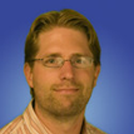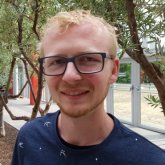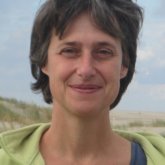PhD opening: Intra-wave modeling of coastal nourishment morphodynamics
Are you interested in doing detailed numerical modeling to better understand coastal nourishment morphodynamics? The Marine and Fluvial Systems group in the Civil Engineering and Management Department is looking for a motivated PhD researcher to strengthen our team. We are an active group of researchers pioneering at the interface of fundamental research in marine and fluvial system and nature-based solutions
This research position is part of the NWO-funded SOURCE program: Sand nOURisment strategies for sustainable Coastal Ecosystems. The SOURCE philosophy is that carefully planned sand nourishments in the present will create the required and desired resilient and dynamic multifunctional coastal landscapes of the future.
SOURCE will deliver the scientific knowledge, models and design tools to develop and evaluate nourishment strategies in a multi-stakeholder co-creation process. Our Living Labs are two sand nourishments along the Dutch coast. These will be co-designed, monitored and evaluated by the SOURCE consortium. There will be 12 PhD, Post-Doc and other researchers at 8 academic institutes in total. They will collaborate closely with 25 partners from government organizations, research institutes, nature organizations and industry.
Within the SOURCE program, your project aims to develop a detailed research model to describe intra-wave cross-shore sand transport and morphodynamics (e.g. OpenFoam). This depth-resolving 2DV model will be used to unravel controlling cross-shore sand transport processes at various scales, such as bottom boundary layer processes, vertical turbulence and sand mixing, and effects of wave breaking. The model will be validated using lab and field data, in particular from new wave flume experiments by a fellow SOURCE PhD. Finally, the research model will be used to inform the development of a more practical numerical model (e.g. Delft3D) that will developed within another SOURCE PhD project to predict nourishments’ lifetime, spreading and impacts on coastal state indicators.
Being part of the SOURCE team implies close interaction with your UT supervisors as well as fellow researchers within the consortium. Especially, close collaboration is foreseen with knowledge institute Deltares. Regular consortium meetings will accommodate knowledge exchange with our partners, increasing the relevance and impact of our research. Furthermore, you will present your work at (inter)national conferences and publish your findings in journal papers and a PhD thesis.
Information and application
For more information about the position, you are encouraged to contact Dr. ir. Geert Campmans (g.h.p.campmans@utwente.nl), Dr. ir. Jebbe van der Werf (j.j.vanderwerf@utwente.nl) or Prof. dr. Kathelijne Wijnberg.
Please upload your application via the ‘Apply now’ button before March 3rd, 2025.
Your application should include a cover letter of max 2 pages (emphasizing your specific interest, motivation and qualifications), a detailed CV, an academic transcript of BSc and MSc education, result of an English test (if you attended a non-English taught MSc program), a publication list (if applicable) and contact details of two referees. Since only three documents can be uploaded per application, please combine documents if needed. An interview and a scientific presentation will be part of the selection procedure.
The first selection interviews are scheduled for March 17th, 2025 preferably in person at the campus of the University of Twente. A second round may be part of the procedure.
We aim for this project to start June 1st 2025. We also welcome students to apply who expect to have finished their MSc thesis around this time.
About the organisation
The Faculty of Engineering Technology (ET) engages in education and research of Mechanical Engineering, Civil Engineering and Industrial Design Engineering. We enable society and industry to innovate and create value using efficient, solid and sustainable technology. We are part of a ‘people-first' university of technology, taking our place as an internationally leading center for smart production, processes and devices in five domains: Health Technology, Maintenance, Smart Regions, Smart Industry and Sustainable Resources. Our faculty is home to about 2,900 Bachelor's and Master's students, 550 employees and 150 PhD candidates. Our educational and research programmes are closely connected with UT research institutes Mesa+ Institute, TechMed Center and Digital Society Institute.





